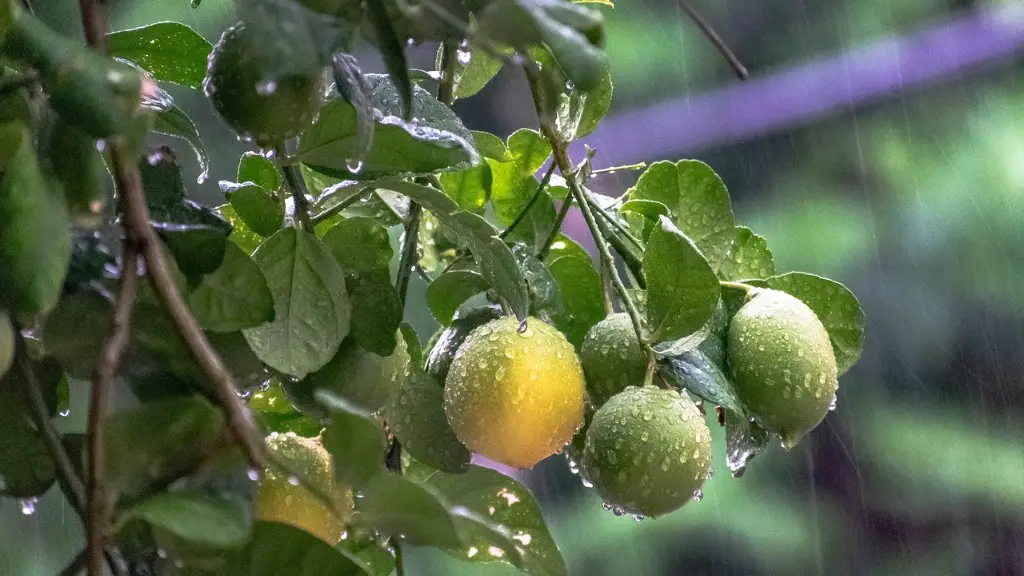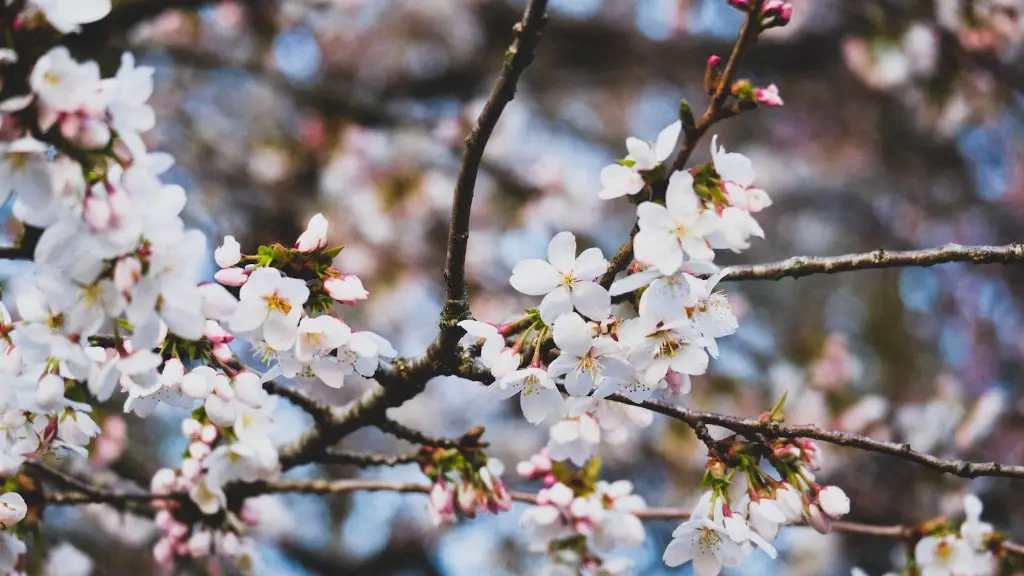Growing a lemon tree is not always a straightforward task. Contrary to what some believe, it requires more than just planting and watering the tree. To succeed, one has to take a holistic approach to caring for the lemon tree. Here are some tips for growing a healthy lemon tree.
Firstly, cultivating a healthy lemon tree starts with healthy soil. The soil should ideally be slightly acidic, have good drainage and have adequate levels of nitrogen and other nutrients. If soil lacks the basic nutrients, applying fertilizer or compost will bring balance.
Next, the right location is a must for optimal growth and production. Lemon trees require plenty of sunlight, around 8-10 hours a day and can tolerate milder temperatures. Choose a sunny spot, protected from winds and direct drafts. Plant it in an area that has a consistent temperature, as a drastic change in temperature can affect growth.
Watering the lemon tree is important for growth, but be sure to not overwater. The rule of thumb is to water it when the top of the soil becomes dry. However, there are variations depending on climate and other conditions, so it’s a good idea to do your research.
Lemon trees tend to bear fruit when they’re three or four years old, with peak production occurring when the tree is five years old. To ensure peak production, trim and prune the tree regularly to allow them to bear more fruit and become stronger.
In addition to regular pruning, it’s also important to fertilize the tree regularly. A balanced fertilization program should include nitrogen, phosphorus, and potassium in its formula to get the optimal benefit. And be sure to supply the lemon tree with the nutrients it needs while producing fruits.
Finally, it’s important to protect the lemon tree from pests and diseases. There are several natural ways to defend against any potential damage to the tree- such as introducing beneficial insects, planting companion plants, and applying organic ways to curtail potential harmful organisms.
Composting
Composting for a lemon tree is a great way to ensure soil health, increase vigor and promote growth. Compost is a nutrient-rich blend of decomposing plant materials, and it adds more organic matter to the soil. By introducing compost to the soil, it helps retain water better and provides beneficial bacteria to the microorganisms in the soil.
To be effective, it’s important to determine the right compost mixture for the lemon tree. Composting can be done in several different ways, either by incorporating compost directly into the soil or with a mulching system. It’s important to understand the environment of the lemon tree to know what type of compost will be the most effective. With proper composting, acidic soil can be balanced, drainage improved and more nutrients become available for the lemon tree.
Organic Diseases and Pests Control
Organic diseases and pest control is another great way to naturally enhance the growth and health of a lemon tree. Generally, a disease or pest will attack a weak tree and if the tree is healthy and strong, it can be able to defend itself. Therefore by supplying the lemon tree with the adequate nutrients and providing a balance environment, diseases and pests should not be an issue.
That said, it’s a good idea to plan ahead and have a strategy to deal with them if they do appear. Detection is key as early detection will allow one to respond quickly with a plan. Although chemical pesticides may be an instant fix, their use should be minimized as much as possible. Natural remedies such beneficial insects and fungicides are a better option for healthier growth and production in the long run.
Winter Preparation
The cold winter months can be extremely damaging to a lemon tree as temperatures drop and frost is present. Therefore it’s important to adequately prepare a lemon tree for the winter for optimal growth in the spring. Here are some steps to take when preparing for the winter months.
Firstly, the best way to protect a lemon tree from the cold weather is to wrap it with burlap or use plastic tree wrap. Wrapping with burlap or tree wrap protects against temperature fluctuation and temperatures below freezing. Doing this during the cooler winter months and especially during a frost is critical.
It’s also important to not overwater the lemon tree in the winter as this can lead to frost damage and kill the tree. The roots store the water and draw on it when needed, so adjust the watering frequency depending on the season and weather conditions. In periods of drought, deep watering can build the tree’s resilience for winter months.
Finally, pruning is important for any season, but winter is even more important. Pruning excess growth and dead limbs allows for more sunlight exposure, which helps the tree regulate temperatures better. Pruning also helps safeguard against fungus growth, which can appear more easily in cooler temperatures, and encourages more vigorous growth in the spring.
Fertilizing
Fertilizing is essential for a successful lemon tree crop and providing the proper nutrients to the tree. A lemon tree needs several macro and micro nutrients, such as nitrogen and potassium, to carry out several tasks, such as improving flower and fruit production.
The correct feed is important, so speak with an agriculture specialist to identify the right type of fertilizer. But the feed can change depending on the time of year and the age of the tree, so it’s best to regularly check on it. Water-soluble feed during spring and summer months and slow-release fertilizer during the winter months can be beneficial.
The lemon tree should be fed and nourished every two to four weeks for optimal growth. However, there are variations to this, so do your research and ask for help if needed. Additionally, be sure to monitor the soil pH and adjust the feed if necessary.
Harvesting
Harvesting lemons from a lemon tree is a rewarding experience but it requires patience and understanding. A tree can take anywhere between one and four years to bear fruit, with peak production occurring after it’s five years old. After the tree starts bearing fruit, harvesting will commence.
The best time to pick the lemons is when they’re slightly yellow. At this point, they’re at their ripest and they can be stored for a few days. When harvesting the lemon, don’t pull the fruit off the tree, but rather use a scissors or knife to carefully cut it so it doesn’t damage the tree.
If the lemons start turning green in color, they still can be picked and can be used as tart lemons. The shelf life of the lemon varies depending on the environment, but they can last up to 2-3 weeks in the refrigerator. Once picked, the lemons should be consumed or used as soon as possible for best results.
Storage Tips
When storing the harvested lemons, its best to keep them in an airtight container in the refrigerator to help preserve them for a longer period of time. Before storing them, wipe them off and make sure to remove any bruises or damaged parts on the lemon to avoid spoiling. To improve shelf-life, keep them in a cool, dry area away from moisture and light.
Additionally, make sure the lemon container has enough airflow and cover it with a dry towel to absorb any moisture. Another way to ensure lemon freshness is to mix some sugar, which helps maintain its natural juices and prevents it from hardening. If you want to extend the shelf-life even further, freeze them for up to 3 months.
Finally, for storing half-used lemons, consider squeezing the remaining lemon juice and pour it into an ice cube tray and place it in the freezer. This prevents the juice from going bad and provides a convenient way to use lemon juice for different recipes and drinks.


